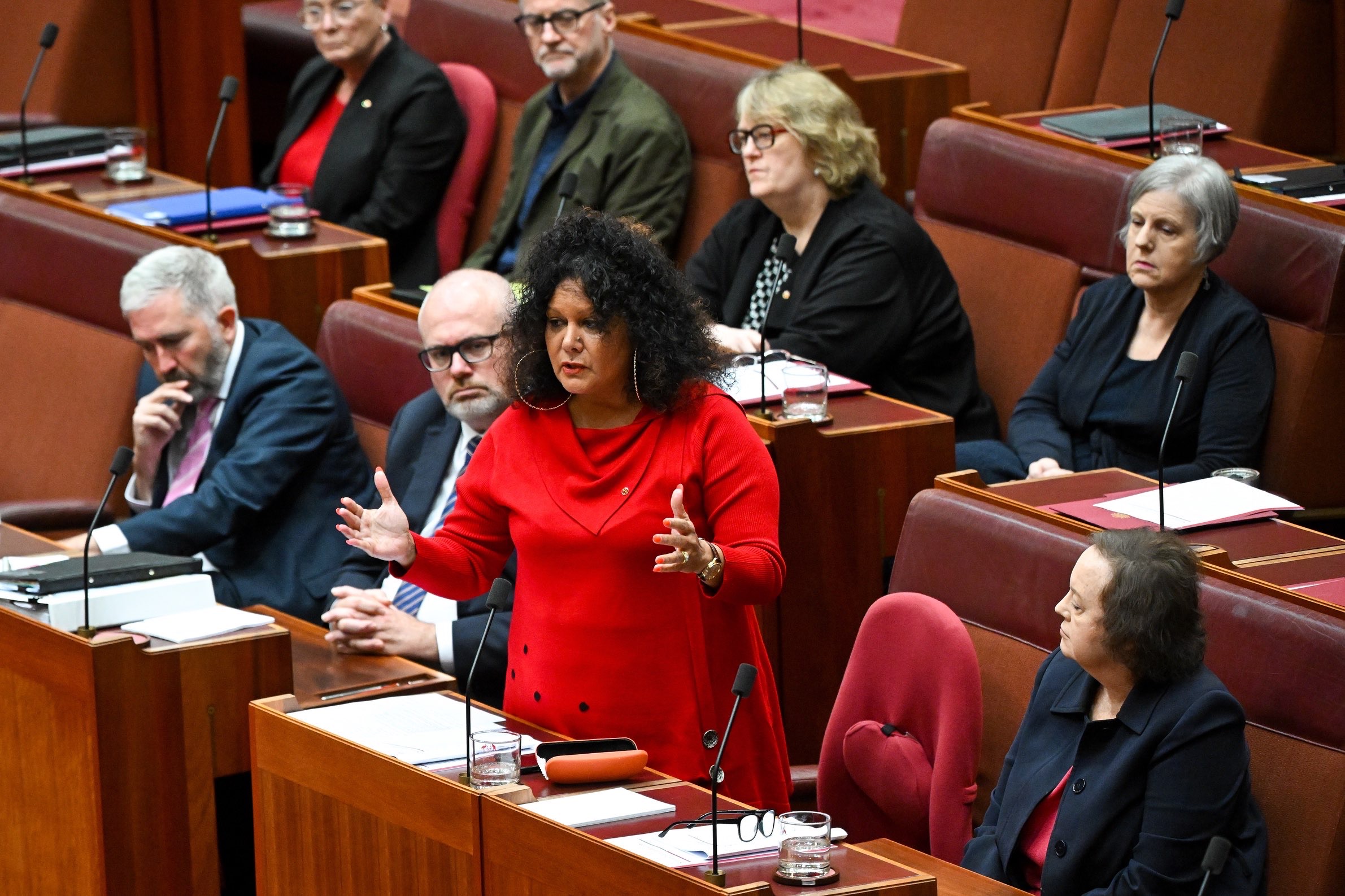
By Andrew Brown and Tess Ikonomou in Canberra
THE final parliamentary vote on holding a referendum to enshrine an indigenous Voice in the constitution has been hailed as a day “as big as Uluru”.
The Senate passed laws – 52 votes to 19 – on Monday to enable the referendum following a fiery last debate in the upper house.
The vote means the referendum will be held in the next two to six months, with the government already flagging the poll will take place between October and December.
The bill passed to a standing ovation in the public gallery and rounds of applause.
Indigenous Australians Minister Linda Burney said the voice was a huge opportunity to take Australia forward.
“Today is a big day – as big as Uluru,” she told parliament.
“Let’s vote ‘yes’ to recognition, unify this country, grow it up and make us all proud to be Australians.”
Assistant minister Malarndirri McCarthy said Indigenous people wanted the voice.
“They’re reaching out to all Australians, to be able to feel proud of this time in our country’s history where we can lift one another up,” she said.
While most coalition senators spoke against the Indigenous voice, the majority voted to set up the referendum to allow the public to have their say.
Opposition Indigenous Australians spokeswoman and ‘no’ campaigner Jacinta Nampijinpa Price described the proposal as “Labor’s voice” and said it would open a “legal can of worms”.
“This is a dangerous and costly proposal, it is legally risky and full of unknowns,” she said.
“It is exploitative, it is emotionally manipulative.
“But worst of all, from the day Mr Albanese put his wording to the Australian people the process of division was begun.”
Independent senator Lidia Thorpe said the voice would be tokenistic and wouldn’t address issues impacting Indigenous people.
“Happy assimilation day, everybody,” she said.
“Many clans and nations around this country do not support assimilating into such a racist, colonial regime and we will continue to push for our sovereignty to be acknowledged.”
Upon the bill passing, Senator Thorpe yelled out “another day in the colony, another nail in the coffin”.
Uluru Dialogue co-chair Megan Davis said the bill passing was an historic moment.
“This is the recognition we’ve been fighting for and what the vast majority of First Nations people support,” Professor Davis said.
Paul Ramsay Foundation chief First Nations officer Michelle Steele, who travelled to parliament for the vote, said there was a feeling of excitement and optimism among ‘yes’ campaigners.
“I want to say to broader Australia, please just listen to us and that’s the most important thing about the voice,” she said.
Prime Minister Anthony Albanese said the voice was “all upside”.
“I’m very confident that a positive campaign will produce a positive result and we’ll produce something that we can be proud of,” he said.
Some senators were designated to vote against the bill in order to allow them to outline arguments for a ‘no’ vote in pamphlets that will be sent to all Australian households.
Liberal MP Julian Leeser, who stood down from the party’s front bench due to his support for the voice, said a ‘yes’ vote would lead to real change.
“It is a safe constitutional change and it will make a meaningful difference to the lives of Aboriginal and Torres Strait islander Australians,” he said.
Who can be trusted?
In a world of spin and confusion, there’s never been a more important time to support independent journalism in Canberra.
If you trust our work online and want to enforce the power of independent voices, I invite you to make a small contribution.
Every dollar of support is invested back into our journalism to help keep citynews.com.au strong and free.
Thank you,
Ian Meikle, editor





Leave a Reply